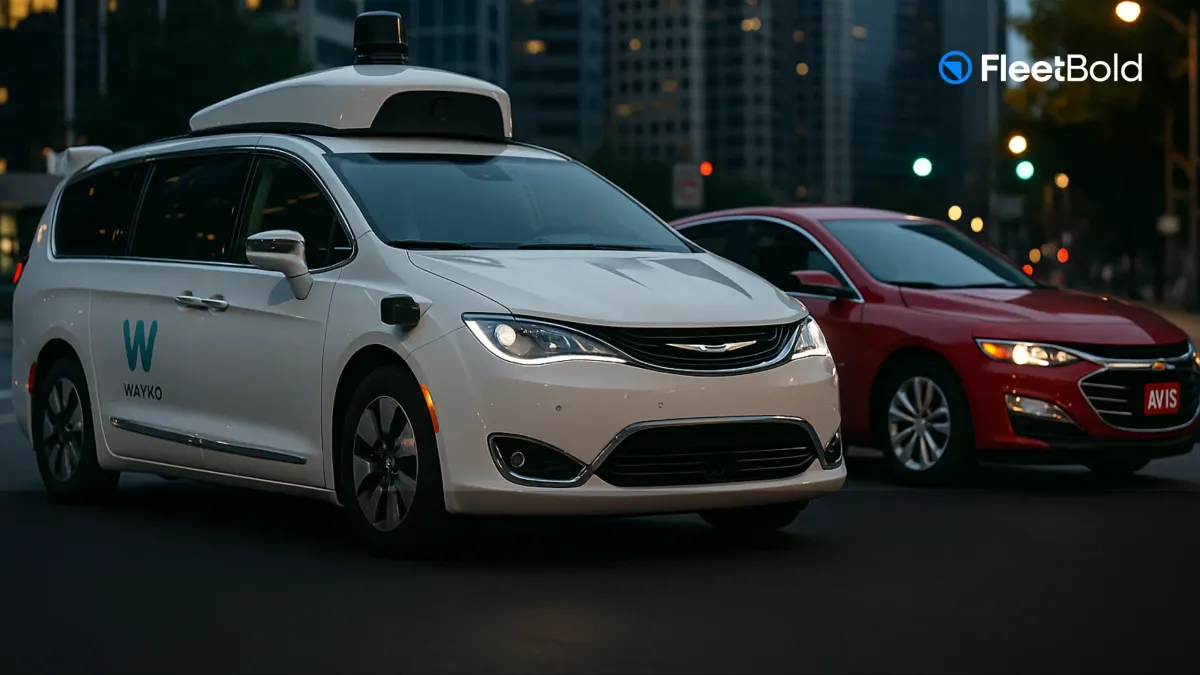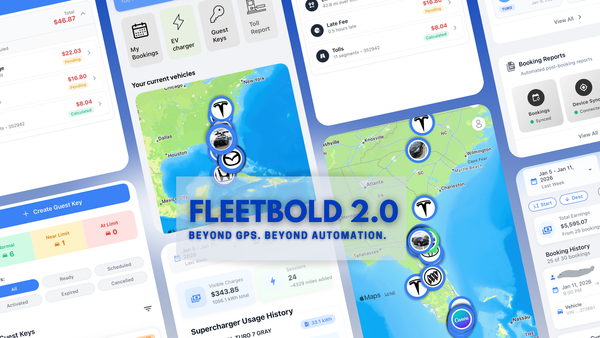Waymo & Avis Robotaxis: What It Means for Turo Hosts and Car Rentals
Waymo and Avis are bringing robotaxis to Dallas in 2026, shaking up the future of car rentals, Turo hosting, and the growing car sharing economy. Is your fleet ready?

Waymo & Avis in Dallas: A Turning Point for Car Rentals and Car Sharing
Waymo, the autonomous vehicle division of Alphabet, has officially announced the launch of its robotaxi service in Dallas, set to begin operations in 2026. What makes this rollout especially significant is the partnership behind it Avis Budget Group, one of the most recognized names in the traditional car rental space, will be responsible for managing and maintaining the fleet.
This announcement goes far beyond a tech headline from Silicon Valley. It sends a clear message to everyone involved in the vehicle rental ecosystem—car rental operators, car sharing platforms, and Turo hosts alike. The industry is evolving quickly, and the shift isn’t just about technology. It’s about integration, automation, and the changing expectations of mobility as a service.
The collaboration between a legacy rental brand and a cutting-edge tech company signals a new phase in the way fleets are operated. It also challenges smaller operators to rethink how they manage their vehicles, how they interact with customers, and how they position themselves in a market that’s beginning to expect more than just keys and contracts.
Why Avis Is Powering Waymo’s Robotaxis
Avis isn’t building self-driving cars. What they bring is experience:
- Fleet maintenance at scale
- Vehicle dispatch and repositioning
- Location infrastructure
- Years of customer and vehicle logistics
Waymo will focus on software and autonomy, while Avis becomes the physical backbone of the fleet. That’s exactly the kind of synergy rental operators need to study and prepare for.
What This Means for the Turo and Car Sharing Industry
If you’re a Turo host, this matters. Why?
Because robotaxis don’t replace rentals they redefine the experience of vehicle access. Just like Turo redefined ownership by letting people monetize personal vehicles, robotaxis are now redefining mobility without ownership at all.
Car sharing platforms and peer-to-peer rentals must now:
- Track vehicles with precision
- Compete on convenience, automation, and safety
- Offer seamless digital check-in/check-out experiences
- Stay ahead of shifting customer expectations
FleetBold: Future-Proofing Turo Hosts and Rental Fleets
This is where platforms like FleetBold are already doing the groundwork. While Waymo and Avis scale the autonomous layer, FleetBold gives independent operators the ability to automate their fleets right now, with:
- 📡 Tesla integration (no hardware needed)
- 📍 Multi-GPS device support (OBD2, hardwired, and more)
- 🔋 Battery and mileage alerts
- 🧠 AI-powered notifications for late returns, disconnections, and usage abuse
- 🔄 Turo booking sync
- 💼 Support for both individual Turo Hosts and large rental fleets
Whether you run 2 cars or 200, FleetBold is already preparing Turo hosts and car sharing operators for what’s next without needing to wait for robotaxis.
Rental Is Becoming Real-Time Mobility
The car rental experience is changing fast. Traditional models based on in-person check-ins, paperwork, and hardware installations are being replaced by instant, digital-first expectations. Robotaxis like those from Waymo aren’t just competing with rental companies they’re revealing what the market truly wants: speed, simplicity, and control.
Customers today are used to services that work on-demand. They expect to book, access, and complete their trips without speaking to anyone or waiting in line. No rental counter. No contracts to sign. No devices to install. Just seamless access.
This shift doesn’t mean traditional rentals are obsolete it means they need to evolve. And that’s exactly what FleetBold enables. By offering real-time insights, remote monitoring, and native Tesla integration with no hardware required, FleetBold helps rental businesses and Turo hosts meet the expectations of a new kind of renter.
With FleetBold, operators can automate key tasks like battery monitoring, mileage tracking, and late return detection. They can manage multiple platforms and vehicle types in one place. Most importantly, they can deliver a modern, frictionless experience that keeps them relevant even as the definition of “rental” keeps changing.
Conclusion: Waymo’s Launch Is a Wake-Up Call
The partnership between Waymo and Avis isn’t just a high-profile tech announcement it’s a clear signal of what’s ahead for the car rental and car sharing industries. This isn’t speculation anymore. It’s execution. Autonomous fleets are no longer experimental; they’re being deployed in major cities with the backing of legacy rental companies.
This shift forces every operator whether managing a traditional rental business, a fleet of Teslas, or a growing portfolio on platforms like Turo to ask a critical question: not if autonomy will impact your business, but when. And more importantly, whether you’re already doing something about it.
Adapting doesn’t require becoming Waymo. It starts by embracing the tools that already exist. Platforms like FleetBold allow operators to digitize their workflows, automate routine tasks, and scale efficiently without depending on outdated processes. From instant Turo booking sync to remote monitoring and AI-powered alerts, the foundation is already here for smart, connected fleets.
Today’s renters are increasingly tech-savvy. They don’t just want a car they expect a seamless experience. Businesses that fail to modernize will quickly fall behind, especially as competition shifts from price to convenience, automation, and trust.
The year 2026 may feel like the future but in operational terms, it’s just around the corner. The companies that start adapting now will be the ones leading this new era of mobility. Those that wait may find themselves trying to catch up in a landscape that’s already moved on.
FAQ
What is Waymo launching in Dallas?
Waymo will operate a fleet of autonomous robotaxis in Dallas starting in 2026, supported operationally by Avis Budget Group.
How does this affect Turo Hosts?
Turo hosts will need to continue improving automation and tracking tools to stay competitive in a market where instant, app-based mobility (like Waymo) becomes more common.
Will FleetBold support autonomous vehicles?
FleetBold already supports Tesla telematics and multi-GPS hardware, and its infrastructure is designed to integrate with emerging fleet models, including autonomous operations in the future.
Is this the end of traditional car rentals?
No but it’s a transformation. Rentals are becoming mobility services, and platforms like FleetBold are helping rental operators and car sharing hosts stay ahead of that change.
What can Turo hosts do to prepare?
Use technology to track, automate, and streamline everything: from late return alerts to battery monitoring. FleetBold was built specifically for this type of modern fleet operation.






